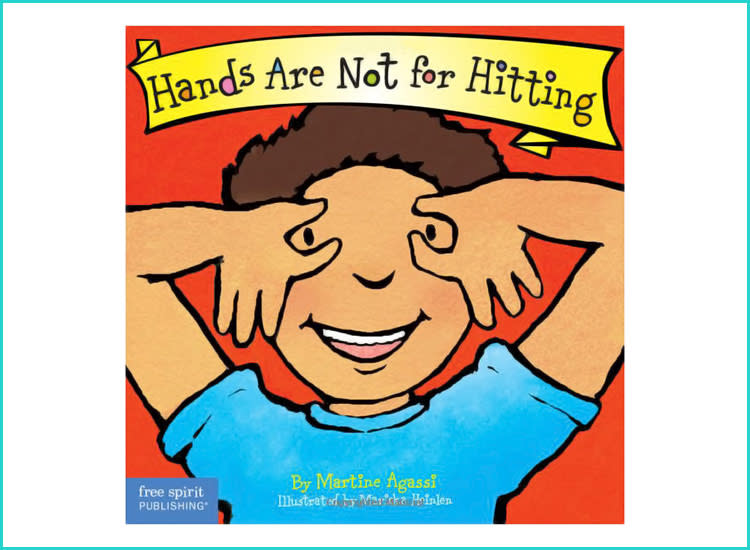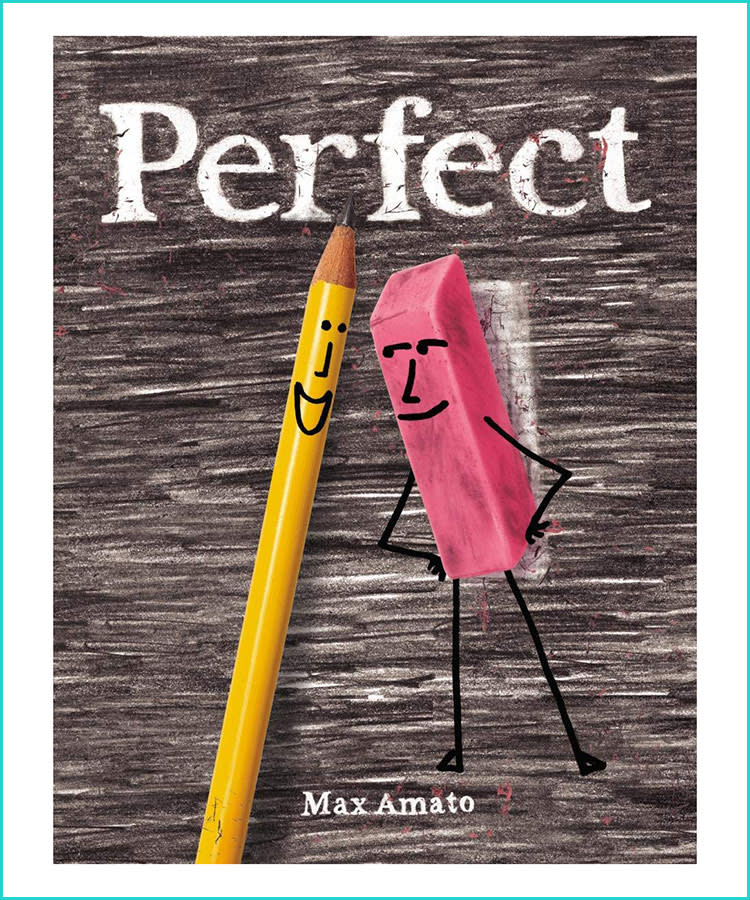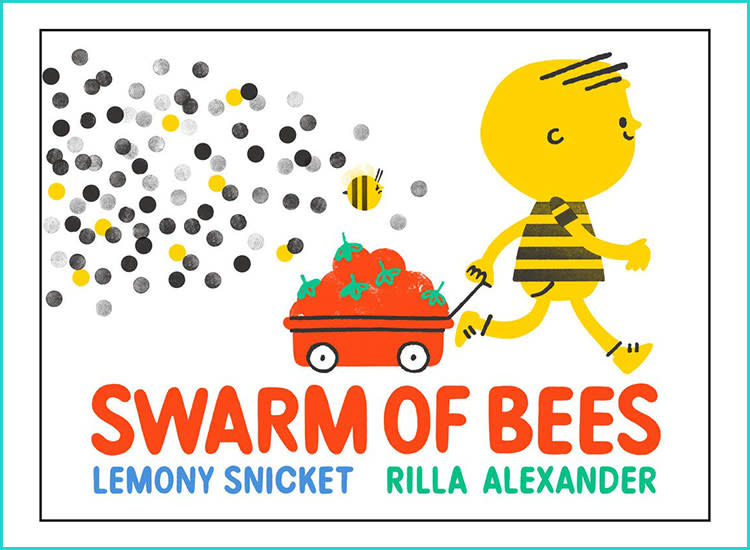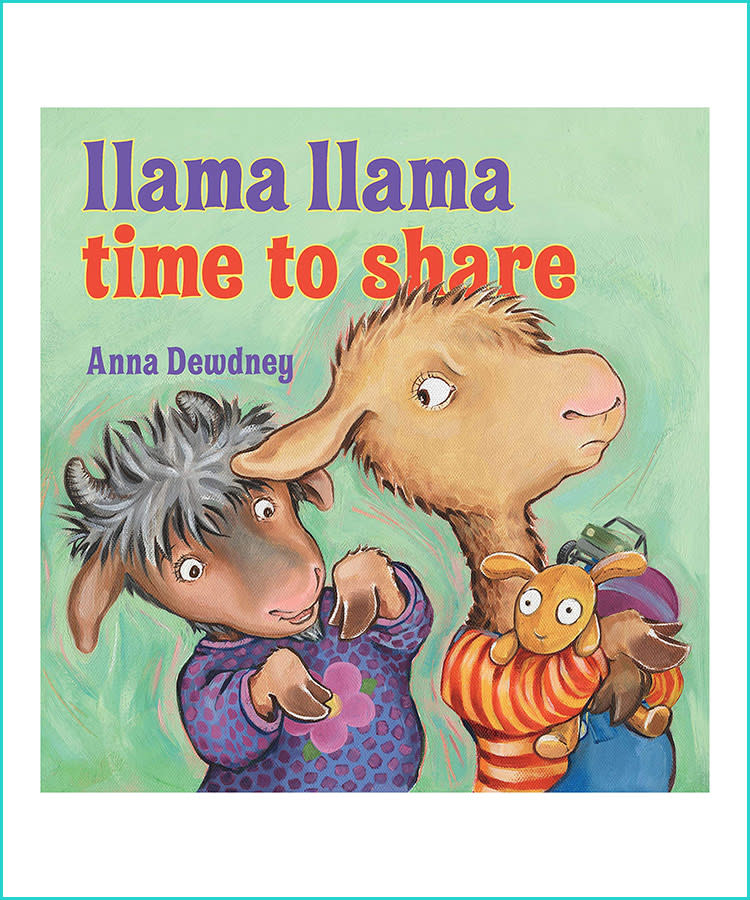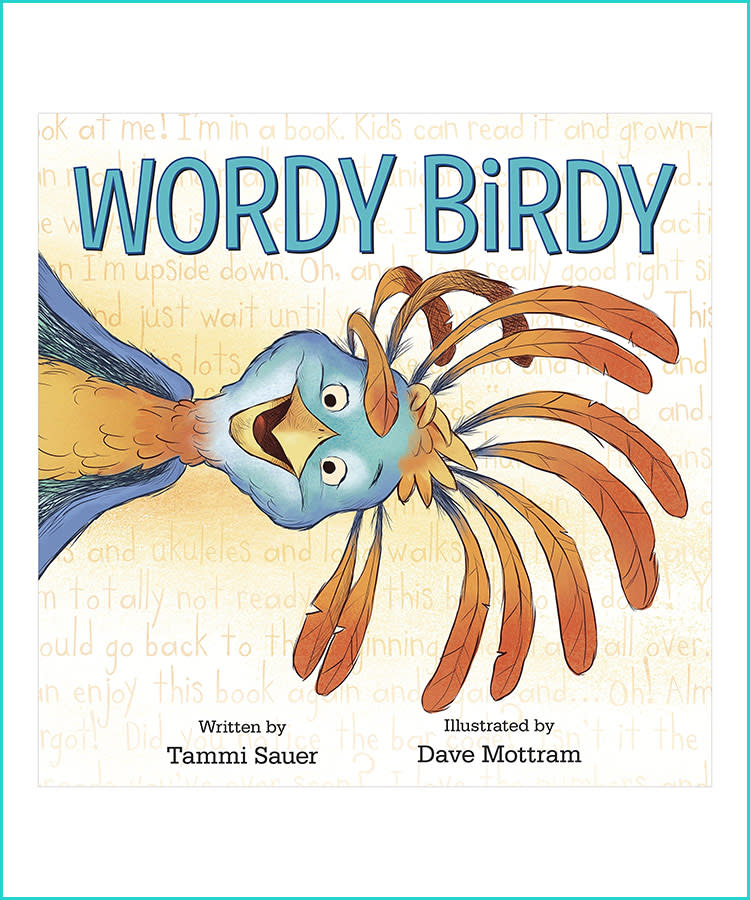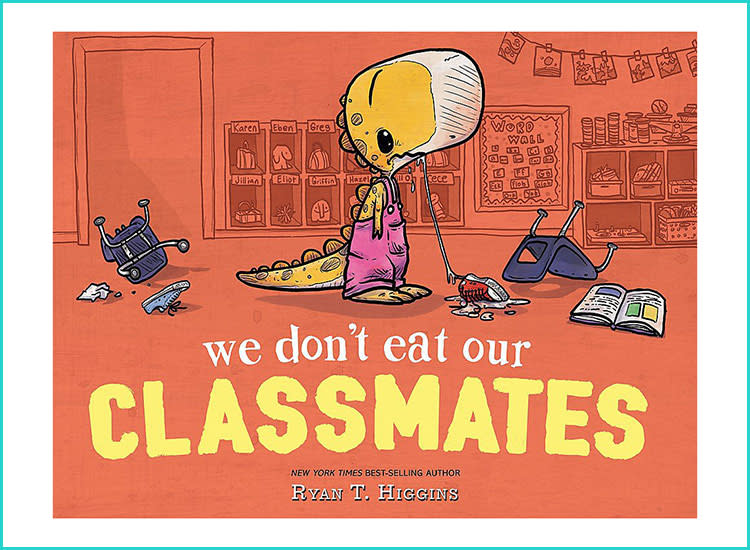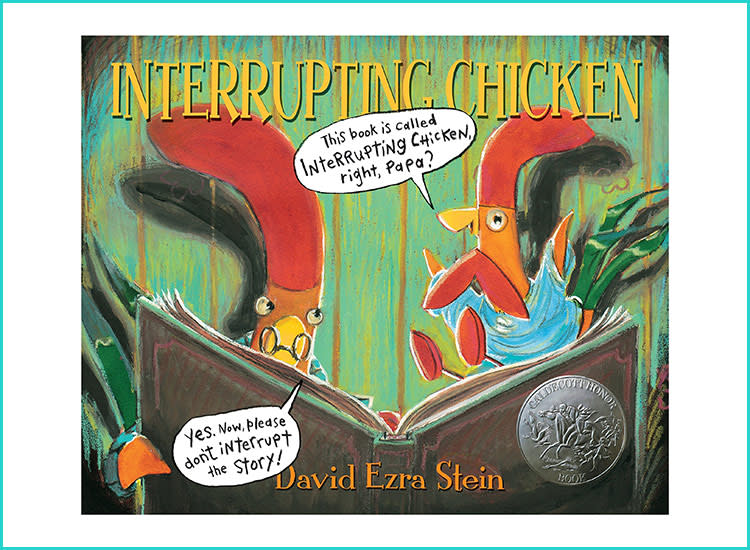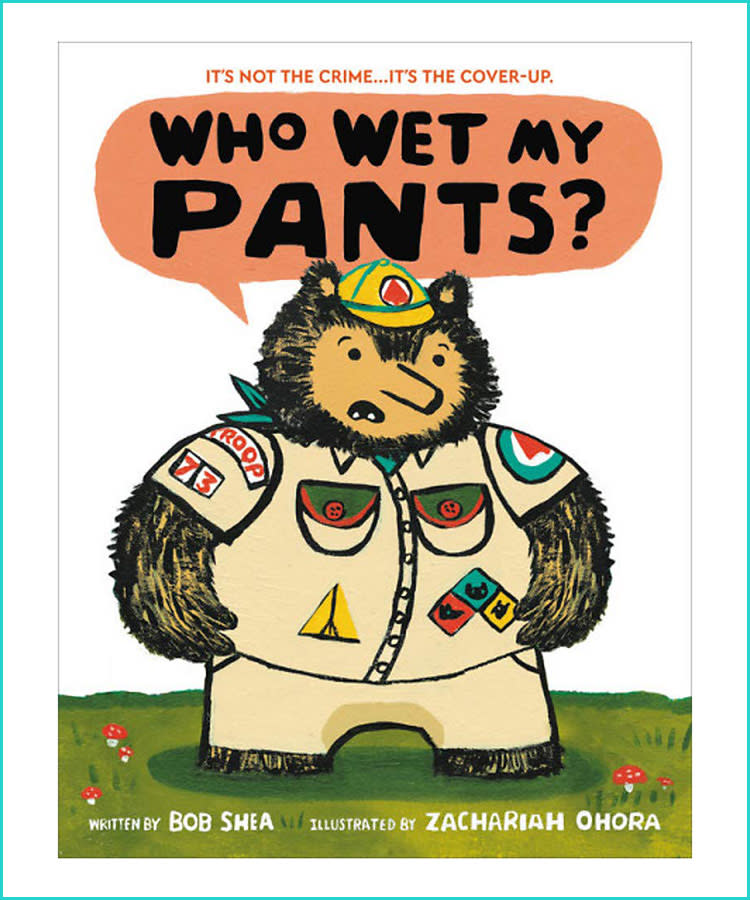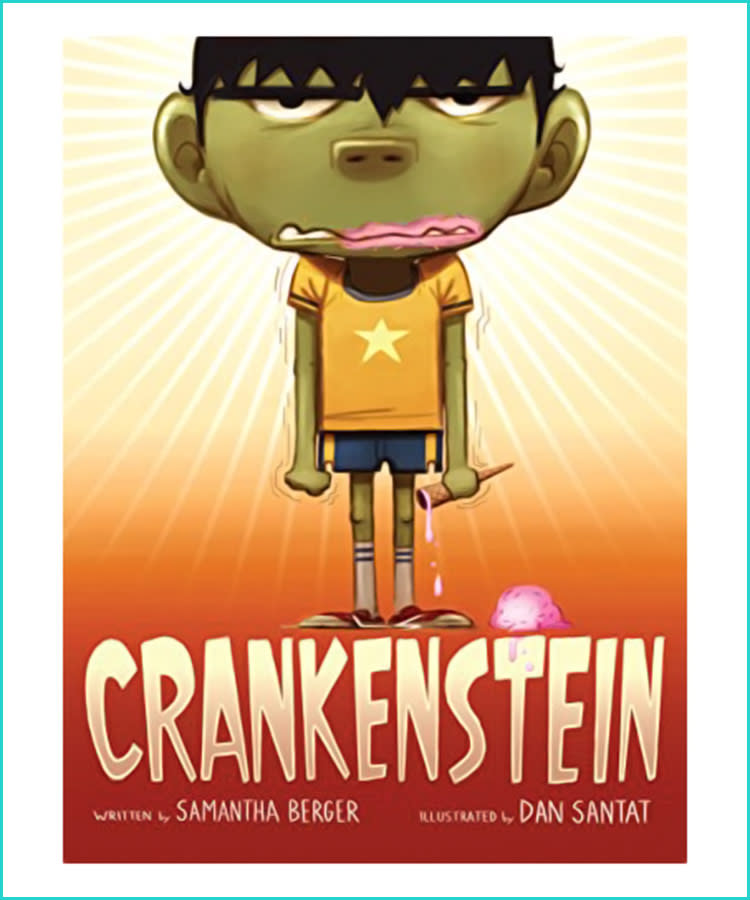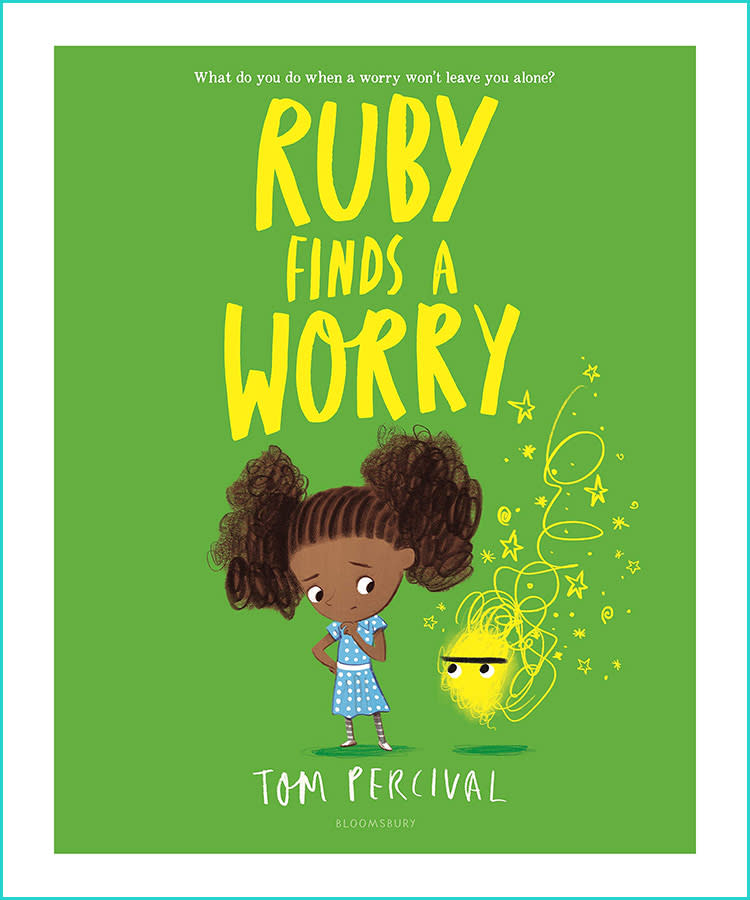10 Children’s Books That Help Toddlers Navigate Their Emotions
They may be little, but toddlers and preschoolers can sure have some big emotions. Young kids are constantly facing new experiences, learning social etiquette and discovering more about themselves and the world around them. That naturally sparks a whole range of feelings—but little ones are still figuring out how to handle all those emotions, which often leads to negative behavior. Whether your child has a tendency to hit, is struggling to share or has zero patience, one thing that might help is reading about it. These children’s books, all fun reads with relatable characters and clear messages about positive behavior and managing emotions, can help guide youngsters as they learn societal rules and how to cope with their feelings.
Helps with: Learning not to hit
Frustration is common for little ones gaining independence and encountering new experiences. Agassi’s gentle approach demonstrates all the good things hands can do, and why using them to hit is never okay. This sturdy board book shows plenty of diversity and uses age-appropriate language so toddlers can best relate to the message. A guide for parents included at the back is also extremely useful in addressing the issue of hitting.
For ages: 1-4
Buy it: Hands Are Not for Hitting by Martine Agassi, $8, Amazon.com
Helps with: Cooperating with others
A pink eraser is very fussy about keeping the pages of this book clean, and when a wily pencil comes along adding smudges and lines, the two start to do battle. The eraser discovers that trying to control pencil’s marks is exhausting, and when faced with a blank page, it suddenly seems not just clean but boring. A funny and creative play on working together and valuing others’ contributions.
For ages: 3-5
Buy it: Perfect by Max Amato, $9, Amazon.com
Helps with: Managing anger
A boy expresses his frustration by pelting a beehive with a tomato, then storms around town with the angry swarm in tow. His frustration and dark mood continue to grow until his tantrum is interrupted and his emotions acknowledged with the wise words, “It can feel good to be angry. It can feel better to stop.” While his behavior is unpleasant and unacceptable, readers can also see that acting out doesn’t help the boy—rather, calming down is the solution he needed. A unique picture book about anger management.
For ages: 4-7
Buy it: Swarm of Bees by Lemony Snicket, $11, Amazon.com
Helps with: Learning to share
Llama Llama is excited about his new neighbor, Nelly Gnu, but he’s struggling with the idea of sharing all his toys with her. When Nelly helps herself to Llama Llama’s beloved stuffed toy, Llama Llama loses his cool, a tug-of-war ensues and the toy is ripped in two. In the end, the toy is repaired, and Dewdney’s beloved character has learned why sharing is important.
For ages: 2-5
Buy it: Llama Llama Time to Share by Anna Dewdney, $14, Amazon.com
Helps with: Listening
Wordy Birdy loves to talk but she isn’t very good at listening. In fact, Wordy Birdy is so self-absorbed that she even ignores her friends’ warnings of danger until suddenly she’s faced with a hungry bear. Though her friends have grown tired of the bird’s monologue, they come to her rescue and Wordy Birdy has an ah-ha moment about the value of listening.
For ages: 3-7
Buy it: Wordy Birdy by Tammi Sauer, $13, Amazon.com
Helps with: Playing nicely
Penelope Rex is a dinosaur who goes to human school and discovers she has a few things to learn about how to behave. Number one lesson: Don’t eat your classmates. Penelope has trouble following this rule, until a classmate eventually takes a bite of her, and she finally understands. Fun for all and ideal for preschoolers or kindergarteners who may be acting out towards other children.
For ages: 3-5
Buy it: We Don’t Eat Our Classmates by Ryan T. Higgins, $11, Amazon.com
Helps with: Practicing patience
Patience, Chicken, patience. Chicken loves her bedtime stories, but she’s constantly interrupting her Papa to finish the tale with her own flourishes. Despite Papa’s many warnings, the interruptions continue until it’s time for Chicken to read and her papa to listen. A book to read over and over that serves up a valuable lesson in patience alongside the laughs.
For ages: 4-8
Buy it: Interrupting Chicken by David Ezra Stein, $8, Amazon.com
Helps with: Handling embarrassment
Potty training is tough, and for kids who struggle with it a little longer there can be a lot of embarrassment when accidents happen. In this tale, Rubin has wet his pants—but he wants someone else to blame. As the finger pointing begins, his friends try to reassure him, but in the end it’s Rubin who must come to terms and accept the situation. A wonderful way to talk about empathy and not expressing embarrassment as anger.
For ages: 4-8
Buy it: Who Wet My Pants? By Bob Shea, $12, Amazon.com
Helps with: Managing emotions
When the little boy in this story becomes frustrated or upset, he turns into the dreaded Crankenstein. Caldecott Medal-winner Dan Santat’s illustrations perfectly reflect the boy’s grumpy response to just about everything, and while no one likes a Crankenstein, we’ve all been there. When Crankenstein meets his match, the tide turns as laughter and play provide the much needed antidote.
For ages: 4-8
Buy it: Crankenstein by Samantha Berger, $12, Amazon.com
Helps with: Handling anxiety
Ruby is a happy child who enjoys activities and likes to explore, but one day she finds a worry. She doesn’t pay it much attention at first but the worry lingers and starts to grow. Percival adds to his Big Bright Feelings picture book series with a story about anxiety that is reassuring (Ruby discovers she’s not the only one with a worry) and an excellent jumping off point for discussing a child’s fears or concerns.
For ages: 3-6
Buy it: Ruby Finds a Worry by Tom Percival, $9, Amazon.com
Tips for promoting positive mental health:
%%IMAGE 11%%
Please note: The Bump and the materials and information it contains are not intended to, and do not constitute, medical or other health advice or diagnosis and should not be used as such. You should always consult with a qualified physician or health professional about your specific circumstances.
Plus, more from The Bump:
Navigate forward to interact with the calendar and select a date. Press the question mark key to get the keyboard shortcuts for changing dates.

































